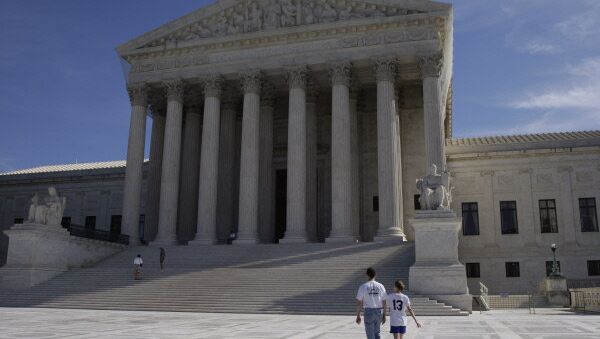MOSCOW, October 10 (RIA Novosti) - The US Supreme Court has decided to block Wisconsin from implementing its new voter identification law, intended to eliminate voter impersonation instances, ahead of the November 4 election, USA Today reported Friday.
According to the newspaper, the Supreme Court released a written order on Thursday blocking the appeals court's action while the state attorney general's office claimed it would mount a full appeal to the high court.
The court did not provide a reason for its decision though Justices Samuel Alito, Antonin Scalia and Clarence Thomas argued that the court does not have the right to block an appeals court ruling unless the lower court "clearly and demonstrably erred in its application of accepted standards," USA Today reported.
Imposing the photo ID requirement "will cause chaos at the polls and will disenfranchise many thousands of Wisconsin voters," the American Civil Liberties Union and the Advancement Project was quoted as saying by USA Today.
The civil rights group petitioned to the Supreme Court to eliminate the photo ID law arguing that it jeopardizes some 300,000 residents who do not have a proper ID, particularly racial minorities, the elderly, students, and individuals with disabilities. The civil rights group urged the justices to temporarily block the law and grant one of the cases challenging photo ID for a full hearing and decision.
In Wisconsin, voters must show a photo ID at the polls according to a law enforced in 2011. The law was ruled unconstitutional by a federal district judge earlier this year who claimed it was unfair towards African-American and Hispanic residents, but the decision was reversed in September and later deadlocked causing the identification law to continue awaiting a final ruling.
The new voter ID law was also rejected in Texas under the argument that the measure was racially discriminatory and a violation of the Voting Rights Act. Both Wisconsin and Texas have taken on the laws to reduce the risk of voter identification fraud. The case is part of a national challenge by groups opposed to laws passed by Republican legislatures cracking down on voting procedures.




